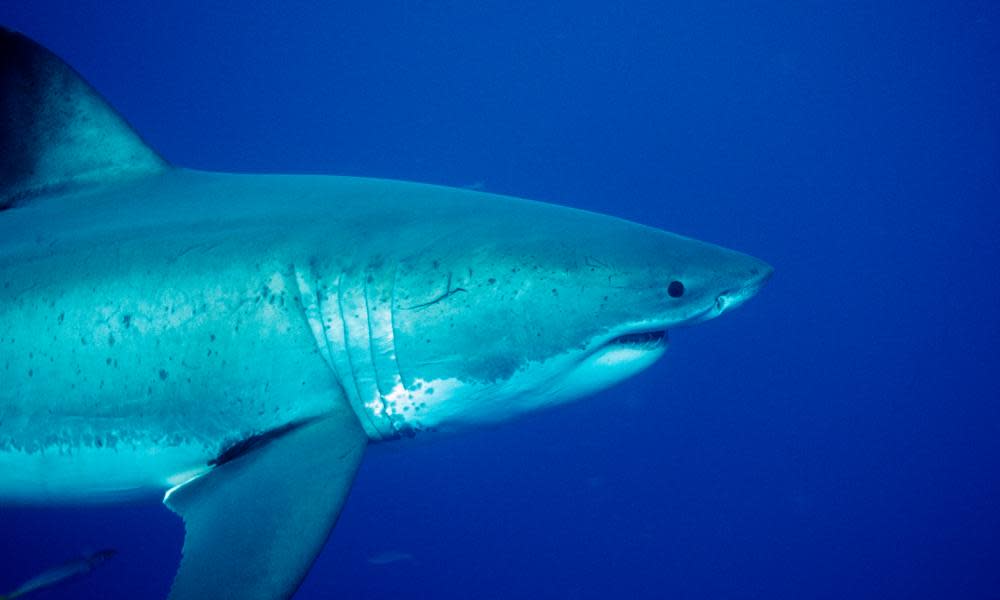Shark attack: man’s left arm ‘nearly severed’ in waters off Port Hedland in WA

A man has nearly lost his arm during a shark attack off the West Australian coast near Port Hedland.
The man was bitten by an unconfirmed species of shark while spearfishing offshore from Port Hedland on Friday morning. He sustained the injuries after spearing a fish, authorities said.
The St John ambulance service was called about 11.30am after the man in his 30s was brought to shore by boat with serious injuries.
Emergency services said he was transferred to Hedland health campus as a priority-one patient.
Related: Shark attack: teenage surfer bitten on arm at Avoca beach on NSW Central Coast
A Royal Flying Doctor Service spokesperson said the man sustained multiple injuries and his left arm had “nearly been severed”.
A crew was dispatched from Meekatharra to collect the man in Port Hedland. He was expected to arrive in Perth for treatment on Friday evening.
The WA Country Health Service said the man was in a stable condition but was unable to provide further information about his injuries.
Earlier on Friday, multiple agencies attended the scene.
DPIRD Fisheries officers are currently involved in assisting with a shark incident near Port Hedland See more: https://t.co/Lg1SfjiRWs
— Surf Life Saving WA (@SLSWA) October 7, 2022
Experts from WA’s department of primary industries investigated and later confirmed it had been a shark-related incident.
The department urged people to take additional caution in the Port Hedland area and to check for shark activity using the SharkSmart website, SharkSmart WA app or Surf Life Saving WA’s Twitter feed.
Shark bites in Australia are relatively rare, with an average of 12.5 incidents occurring a year over the past decade. Fatalities have decreased since the 1990s.
There have been nine shark incidents nationally so far in 2022, according to the Shark Incident Database maintained by the Taronga Conservation Society Australia, Flinders University and the New South Wales Department of Primary Industries.
There has been one shark-related fatality in Australia this year – at Sydney’s Little Bay in February.
The shark database classifies incidents as provoked or unprovoked. Surfing is not considered provoking a shark, but injuries sustained while spearfishing are considered the result of a provoked bite, as the release of fish blood attracts sharks.
Many shark species that live in Australian waters are protected, including the white shark, which is the most common type of shark associated with injuries in WA. It is listed as a vulnerable species under commonwealth conservation laws.

 Yahoo Movies
Yahoo Movies 
